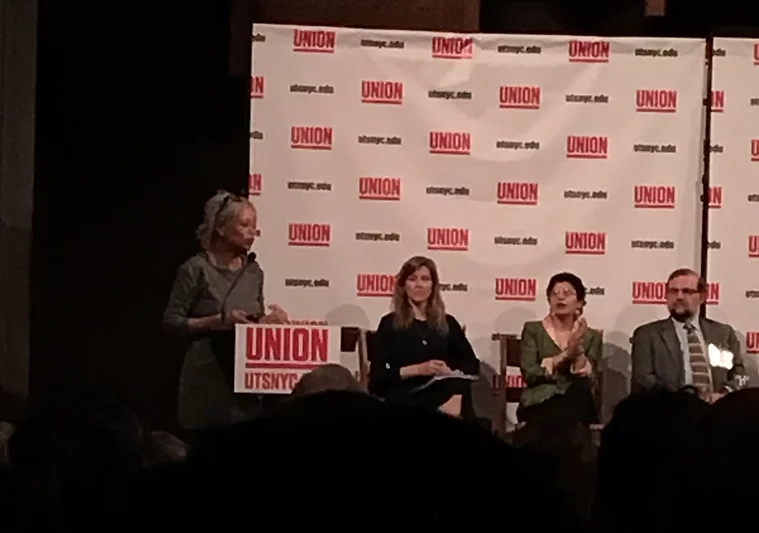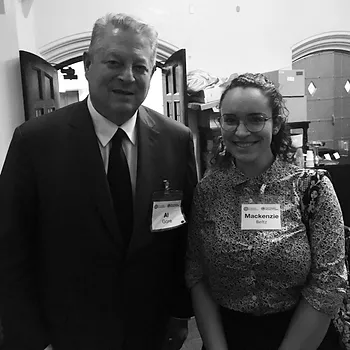
Having Faith in Justice
June 13, 2017 | Mackenzie Beltz, Environmental Leadership Intern
It is not often that I see faith and environmental activism intersect, but last Tuesday, June 6th, 2017, I had the opportunity to attend a portion of The Center for Earth Ethics’ weekend-long conference, “Ministry in the Time of Climate Change”. Many of the conference-goers I spoke to, all of them faith leaders from a wide spectrum of faiths, admitted that while they were well-versed in religious texts and community engagement, they struggled to integrate climate awareness into their sermons, fearing backlash. Today, climate change is not purely accepted as fact, but is a political talking point (or not-talking point) that divides the country, and fear of deepening that division can lead to faith leaders’ reluctance to discuss it with their communities at all.
At the conference, speakers from many different religions and cultures shared ways to engage with their prospective congregations, groups, and tribes. During a panel entitled “Meeting Denial, Grief and Despair With Integrity, Grace and Hope,” Margaret Bullitt-Jonas of Reviving Creation shared a thought that I found moving, “If we turn to God as an extrinsic source of hope, saying, ‘If climate change is real, God will surely do something about it,’ our hope is very vulnerable. Intrinsic hope is the hope we feel in those moments where we truly know who we are. Our purpose is to love.” Climate change can inspire fear and uncertainty for the future, but the moderator Andrew Schwartz and the panelists, Margaret Bullitt-Jonas, Lynne Iser, Barbara Rossing and Aliou Niang shared strategies to channel that fear into hope and inspiration for the future.

 Me and Vice President Al Gore
Me and Vice President Al GoreLater in the evening, I had the privilege of attending a community discussion moderated by Karenna Gore and Derrick Harkins and featuring Vice President Al Gore, Pat Williams, Azza Karam and Burt Visotzky. I was particularly interested in Ms. Williams’s insights on the legal and economic implications of environmental degradation and climate discourse. And of course, the “headliner” Al Gore was an incredible speaker who left everyone in the room aware of the imminent danger of climate change, while also convincing us that we could enact positive change to save our planet together.
It was humbling to see ministers, Native American chiefs, rabbis, priests and imams coming together to admit that for all their knowledge, there were things that they did not know. “I came here to learn,” shared one man during a small discussion group, “and to take this information back to my people.”
Bethany Yarrow and Rufus Cappadocia performed a beautiful song that was shared immediately after the “Denial, Grief and Despair” panel and gave me a strong feeling of healing and peace following such a difficult discussion.
***
Link back to the original post and the work of the Human Impacts Institute
